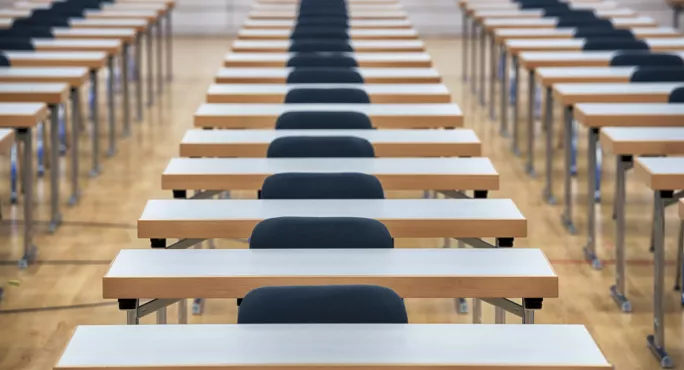My students are failing. The more I mark what the government is, insultingly, still not calling exams, the more disheartened I become. Students who, in previous years, could have achieved As are getting Bs and Cs. “Borderline” students are scraping Ds. Many more are failing altogether.
What saddens me the most, though, is that I work in one of the most deprived areas in Scotland. I do not need to see national data to know that the attainment gap that the Scottish government has been so keen to decrease has widened significantly in the past 12 months.
It’s here, in black and white in front of me: my students have failed to achieve their potential in these assessments. But why?
Also today: New bid to secure SQA and Education Scotland reform
News: Students face ‘up to 43 exam-like assessments’
Exclusive: Exam questions shared on TikTok ‘SQA black market’
A teacher’s view: How to avoid a repeat of the 2020 results debacle
A student’s view: If these aren’t exams, why have we got exam stress?
When S4-6 returned to school full-time in April, their educational year had consisted of four months of disrupted schooling and three months of online learning. They’d had no formal prelims and, consequently, no post-prelim feedback; most had no experience of sitting a “proper” exam diet. (Let’s also not forget that current S5 pupils did not sit exams in 2020 either). Most importantly, they’d not had the supportive interactions with teachers that so many of them desperately needed.
Student’s battered and bruised by this year’s SQA assessment system
The reality is that “normal” levels of attainment were never going to be achievable this year because we haven’t had “normal” levels of teaching and learning. Like many of my students, hundreds of young people across Scotland are living in circumstances that mean having a reliable internet connection, and a suitable device on which to access it, are just a dream. Others share devices and bandwidth with siblings and parents.
Even if students have had access, three months of meaningful learning could not be replicated in a virtual environment over the same time period. Simply put, all students lost out, not just those in the most deprived areas and certainly not just those in S4-S6. On top of all that, many young people had their lessons and lives regularly interrupted between August and December.
Some had to deal with shielding and sick family members, others were continuing caring responsibilities and some even lost relatives. An S5 student I spoke to in November confided that she was scared to come to school because she was her aunt’s main carer and was terrified of “killing her” (her words). An S4 student’s mum died in January leaving her desperately low but under pressure to keep working, so as to not “let down” her dad.
As the year has gone on, concerns about pupil attainment have rapidly turned into concerns about pupil welfare. Yet even in the face of all this, the Scottish Qualifications Authority (SQA) has continued to insist that we base our provisional results on demonstrated attainment.
It should not come as a surprise, therefore, that, after two months of wall-to-wall assessment, our students are failing to achieve their potential. Last year’s system, while it had massive faults, at least meant we could make allowances for the impact of Covid-19. This year’s system is not allowing us to do this. And it could so easily have been rectified.
The SQA could have taken the decision in January to allow teachers to use a combination of exam-style assessment and inferred judgment to determine the grades of our students. When we returned to school in April, we could have focused on collecting evidence without pressure, nurturing our students who have been most disadvantaged by the pandemic. Instead, our young people have been battered and bruised by the very system that is designed to support and care for them.
My students are not failing - the system is failing my students.
The author is a secondary school teacher in Scotland





